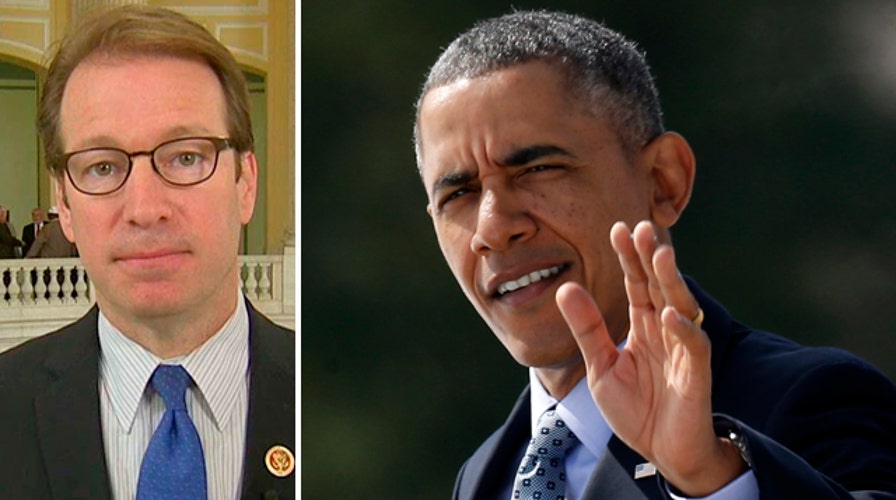Lawmaker wants to track ObamaCare's $1.8T taxpayer dollars
Rep. Roskam to introduce bill to enlist inspector general
Pessimism. Fear. Anger. Those are the most common sentiments expressed about the Affordable Care Act, according to a Fox News national poll that asks voters to pick from a range of emotions that describe how they feel about the law.
Pessimistic is on top: 49 percent say it describes how they feel.
Next is scared (45 percent), followed by angry (43 percent).
On the positive side, 40 percent of voters are optimistic about Obamacare, 24 percent are proud and 21 percent feel excited.
A 63-percent majority of Democrats feels optimistic about the law, while less than half are proud (46 percent) or excited (40 percent). Those are the three sentiments Republicans and independents are least likely to feel.
Two-thirds of Republicans say angry (68 percent), scared (67 percent) and pessimistic (66 percent) describe how they feel about the health care law. For independents, the top three emotions are pessimistic (49 percent), scared (41 percent) and angry (43 percent).
Overall, the new poll, released Thursday, finds that 38 percent of voters favor the health care law, while 57 percent oppose it. In January, it was 36-59 percent.
Fully 91 percent of Republicans, 60 percent of independents and 27 percent of Democrats oppose the law. A 68-percent majority of Democrats favors it.
Those under 35 are more inclined than other age groups to like Obamacare, and those living in lower income households are more likely to favor it than higher earners.
Voters remain unhappy with President Obama’s performance on health care: 59 percent of disapprove, including 30 percent of Democrats.
Just 36 percent of voters approve of the job he’s doing. That matches a previous low approval in November (36 approved, 61 disapproved). Last month it was 38-59 percent.
Likewise, 36 percent think the Obama administration has “mostly succeeded” on health care, while 57 percent say “mostly failed.”
The Fox News poll is based on landline and cell phone interviews with 1,002 randomly chosen registered voters nationwide and was conducted under the joint direction of Anderson Robbins Research (D) and Shaw & Company Research (R) from March 2 to March 4, 2014. It has a margin of sampling error of plus or minus three percentage points for the total sample.





